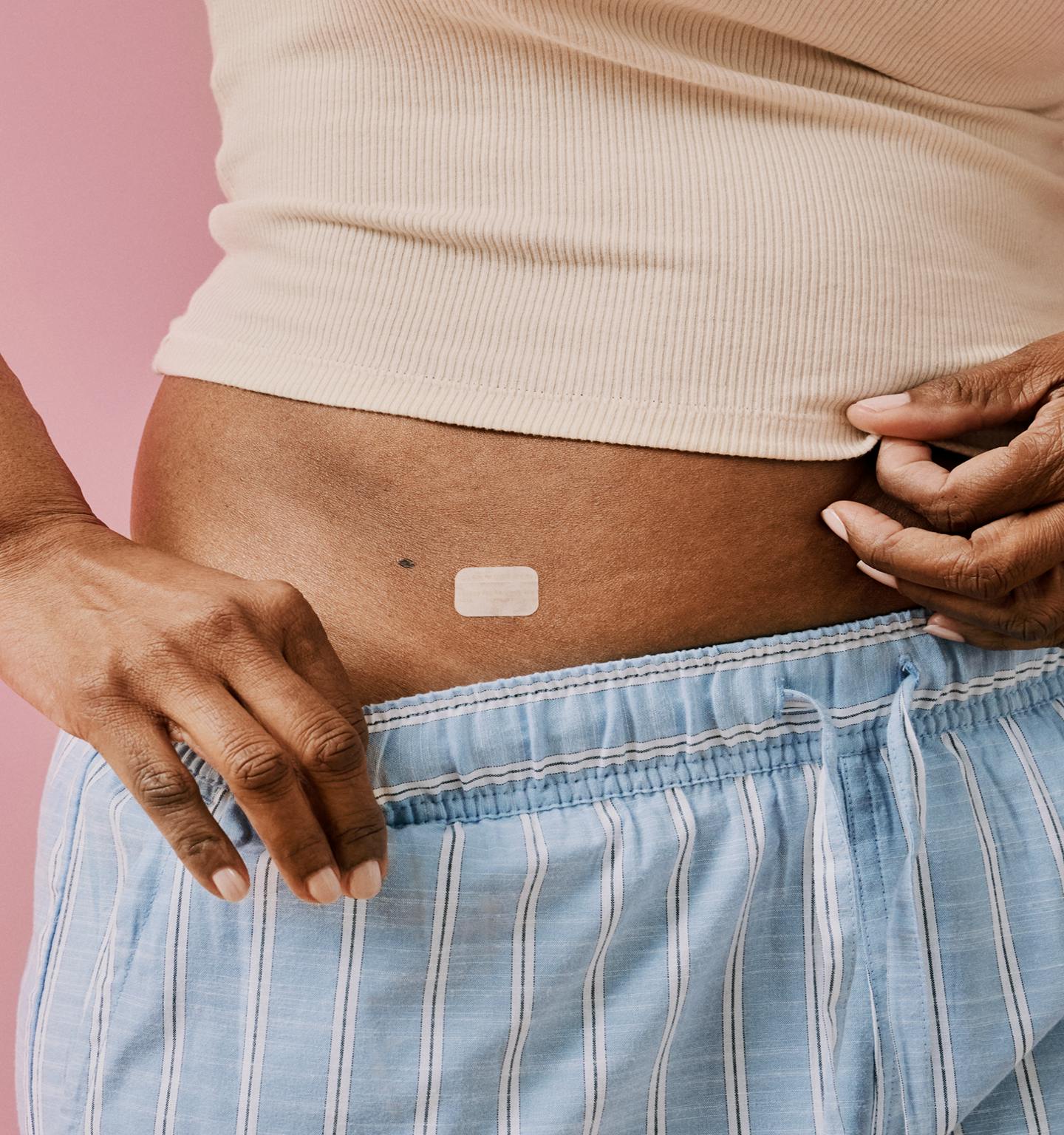If you follow me on social media or you’re a patient of mine, you know that I talk about hormone therapy a lot. Here’s why I’m not keeping quiet: Hormone therapy can be a game-changing medication for women in midlife, yet so many patients receive conflicting advice or are discouraged from even considering the treatment. I’m on a mission to arm women with the evidence-based knowledge they need to determine which menopause treatment is best for them.
I’m thrilled to have the opportunity to talk about all things hormone therapy with an even larger audience of women, so let’s start by answering 10 of the most common questions we get from patients.
I hope this info is helpful, and that you consider scheduling a Midi visit so we can give you the personalized care you deserve. Your clinician will share the facts, and partner with you on decision-making about hormone therapy and all the alternative solutions out there. Because the TL;DR of any of my hormone therapy explainers is that this is not up to your provider—you have a (loud!) say in how to manage your menopausal symptoms.
1. What is hormone therapy?
Hormone therapy is a type of medication used to treat menopausal symptoms brought on by changes in hormone levels. It works by releasing estrogen into the bloodstream or vaginal tissue, and is available in many forms, including pills, patches, vaginal rings, and topical creams and gels. To protect the uterus (in patients who have one), doctors add progesterone or progestin to estrogen, which reduces any risk of uterine cancer.
The term you’ll commonly hear for all these medications is hormone replacement therapy (or HRT). Technically, that language is incorrect, because we are not fully replacing the hormones your body stops producing during the natural menopause transition. In fact, these meds add back just a small percentage of the hormones your body makes during your fertile years—it’s a drop in the bucket compared to where your levels were, say, during your 20s.
But since HRT is the term you hear all the time, I’ll use it in my answers below, referring to various forms of supplemental hormones that circulate throughout your body, helping with hot flashes, night sweats, and many other symptoms that can come with perimenopause and menopause.
2. I heard that hormone replacement therapy isn't safe. Why does Midi recommend it as part of some Care Plans?
Hormone replacement therapy came under fire after a 2002 Women’s Health Initiative (WHI) study linked taking estrogen plus progestin hormone replacement therapy to an increased risk of breast cancer and heart disease. Not surprisingly, women panicked and most doctors stopped prescribing HRT altogether.
That was 20 years ago, and these days, we know much more about HRT. For one thing, we know that the WHI was designed to study the prevention of chronic diseases, not to look at the prevention of hot flashes and other hormonally-driven symptoms of menopause. Moreover, the 2002 findings were misrepresented (I dig deep into that issue in this podcast). In fact, a large body of recent research shows that if women start hormone replacement therapy within 10 years of their last period, not only do they enjoy significant relief from menopausal symptoms but they also have a lower risk of heart disease and bone loss. HRT may also be connected to decreased risk of diabetes and weight gain.
It’s been frustratingly difficult to shake the misconception that HRT is unsafe, but at Midi, we support its use and prescribe it responsibly. That means partnering with you on a personalized Care Plan based on your unique symptoms, risk factors, and approach to wellbeing. And I’ll say this: If your doctor pushes back on HRT without a detailed discussion, I recommend getting a second opinion.
3. What are the benefits of hormone replacement therapy?
In addition to the health improvements mentioned above, HRT has this going for it: It’s the most effective treatment for relieving menopausal hot flashes, night sweats, vaginal dryness, and recurrent urinary tract infections, according to the most recent guidelines from The Menopause Society. Clinically, hormone replacement therapy has also been shown to be highly effective in relieving symptoms of insomnia, mood changes, and brain fog.
4. What are the risks of hormone replacement therapy?
That same WHI study found that taking combined estrogen and progestin HRT may increase the risk of breast cancer, but here’s why I’m not concerned: This increased risk was very low, and the types of synthetic progestin hormones used in the study are not typically prescribed today (Midi clinicians do not recommend them). Compared with synthetic progestin, the bioidentical hormones prescribed at Midi do not show clear increases in breast cancer. (To put this into perspective, drinking five glasses of wine a week raises your breast cancer risk significantly more.)
However, hormone replacement therapy can slightly increase the risk of blood clots, which is why your clinician should do a thorough review of your health history before prescribing HRT. But I like to remind my patients (and The Menopause Society agrees) that if started within 10 years of your last period, the benefits of hormone replacement therapy usually outweigh the risks. My top example: HRT has cardiovascular benefits which may protect against heart disease, the number one killer of women.
5. What are the side effects of hormone replacement therapy?
The most commonly experienced side effects of HRT will give you PMS flashbacks; think breast tenderness, bloating, mood swings, headaches, and vaginal bleeding or irregular spotting. If any of these are severe, or if you have other concerning side effects, you should, of course, talk to your clinician. Changing your dose or switching to a different form of HRT (from the pill to a patch, for example) may ease these issues quickly.
6. Can I take hormone replacement therapy after a hysterectomy?
Yes, and I recommend it. Women who have had their uterus removed (via hysterectomy) don’t need progesterone to guard against uterine cancer, so they are prescribed estrogen-only HRT, and it turns out that estrogen alone is extra protective. Research shows that women 60 and younger without a uterus who take estrogen hormone replacement therapy within 10 years of menopause have a lowered risk of breast cancer, among other health benefits.
7. Who shouldn't take hormone replacement therapy?
While it’s highly effective at treating menopausal symptoms, hormone replacement therapy isn’t for everyone. Your clinician may suggest other, non-hormonal menopausal treatment if you have a history of stroke or certain types of blood clots, some types of heart or liver problems, cancer that might be stimulated by hormones (including some kinds of breast and uterine cancer), or if you’re currently dealing with unexplained vaginal bleeding.
If you’re not a candidate for HRT or prefer not to take hormones, Midi will guide you toward other effective solutions, such as non-hormonal medications, supplements, lifestyle changes, and wellness therapies.
8. When should I start hormone replacement therapy?
I recommend that patients kick off treatment within 10 years of their last period, when the benefits of HRT tend to outweigh the risks. For many women, it makes sense to start earlier: You can begin hormone replacement therapy at the first sign of menopause symptoms, even if you’re in perimenopause and still getting your period.
For women who start HRT outside of that 10-year window, there’s a null effect on cardiovascular disease risk, meaning that you won’t get the heart-bolstering benefits from HRT, but it may not increase your chance of heart trouble either. I tell my patients that if their menopause symptoms are truly harming their quality of life, it’s worth considering HRT, whatever their age. But an individual risk assessment is always helpful.
9. How long can I safely be on hormone replacement therapy?
Doctors once believed that women should stop HRT by age 65, but newer guidelines from NAMS state that the length of hormone replacement therapy treatment should be a shared decision between patient and medical practitioner. Some of my patients prefer to take HRT for the shortest amount of time that it takes to get over the worst of their symptoms, while others feel so fantastic on it that they never want to stop treatment. Both are good options with the right medical partnership and routine health checkups.
What do I mean by that? If you started HRT within 10 years of menopause, each year your doctor should make sure that your HRT prescription is still easing your symptoms without side effects, and that you’re up to date on screenings like mammograms and colonoscopies. Provided you’re in the clear health-wise to continue on hormone replacement therapy, then it’s up to you and your clinician whether to continue.
10. How can I tell if my HRT dose is right for me?
Midi teaches clinicians that patients should experience about an 80 percent improvement in symptoms. If you’re not quite there, we can tweak your prescription until you get the relief you deserve.
If you’re in perimenopause or menopause and want guidance from clinicians who specialize in women’s midlife health, book a virtual visit with Midi today.
Hormonal change is at the root of dozens of symptoms women experience in the years before and after their period stops.
Our trained menopause specialists can help you connect the dots to guide you towards safe, effective solutions.
Whether you need personalized guidance or a prescription routine to tackle symptoms—including brain fog, hot flashes, sleep trouble, mood swings, and weight gain—we’ve got you covered. Learn more here.
Midi’s mission is to revolutionize healthcare for women at midlife, wherever they live and whatever their health story. We believe that starts with education, to help all of us understand our always-changing bodies and health needs. Our core values guide everything we do, including standards that ensure the quality and trustworthiness of our content and editorial processes. We’re committed to providing information that is up-to-date, accurate, and relies on evidence-based research and peer-reviewed journals. For more details on our editorial process, see here.
 Heather Hirsch, Guest Editor + Board-Certified Internist
Heather Hirsch, Guest Editor + Board-Certified Internist
